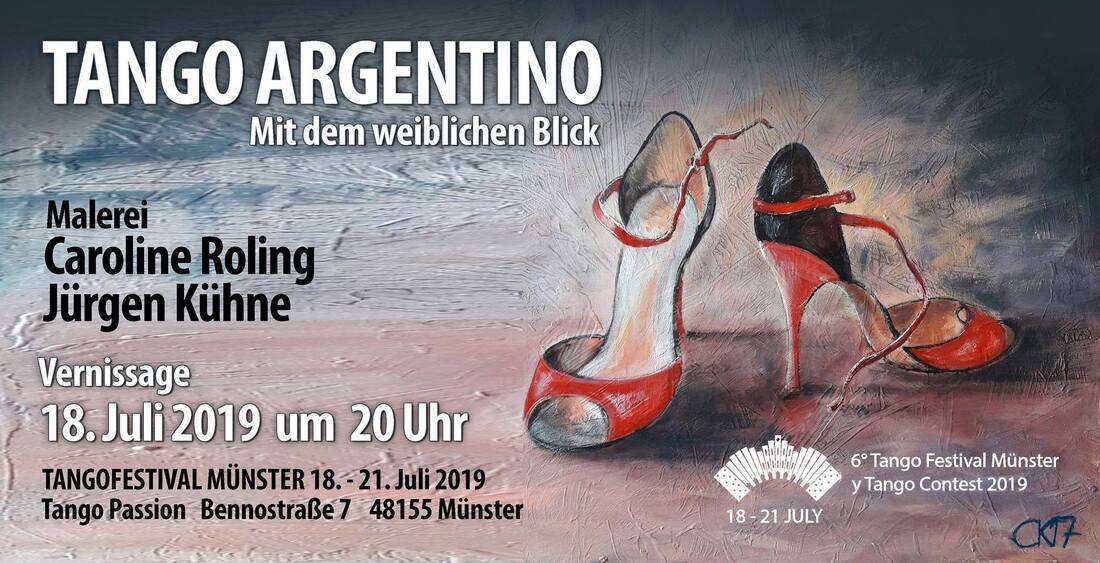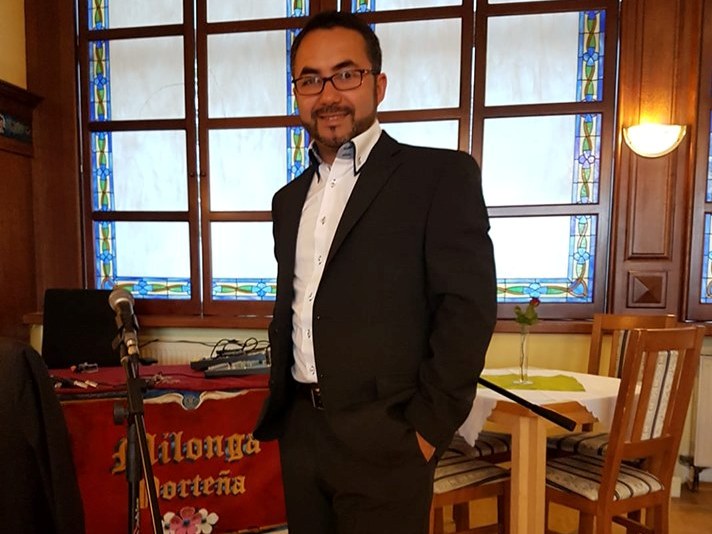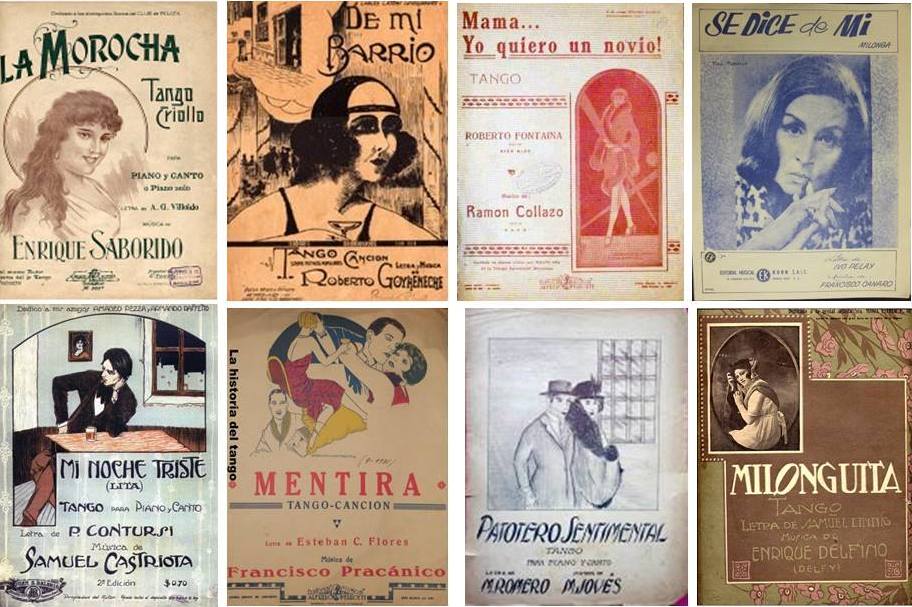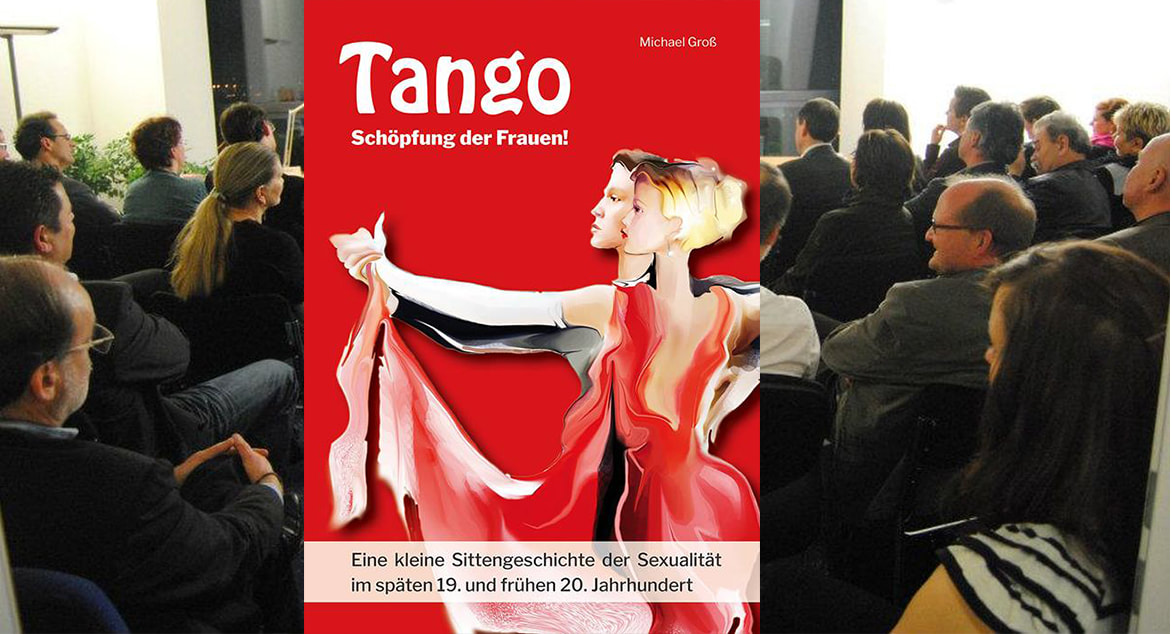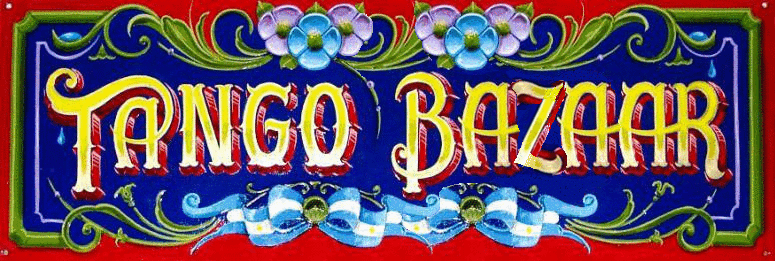Tango was recognized in 2009 by the UNESCO as an immaterial world cultural heritage. In addition to the Workshops, the Milongas and the Contest, other cultural events will take place which deal with the subject " the woman in the tango ". Find out more about tango in literature, painting and literary analysis!
Art opening and art exhibition "With feminine perspective"
Caroline Roling und Jürgen Kühne
Thursday 18/07/19 8:00 pm-9 pm, location: Tango Pasión
|
Within the framework of the tango culture week Münster and in parallel to the 6th Tango Festival Münster, Caroline Roling and Jürgen Kühne present pictures which consider the tango Argentino specially from the feminine point of view.
Both artists are also experienced tango dancers and have dedicated this exhibition specially to the subject of their passion, the Tango Argentino. They present the fascination of this dance in their pictures, while they try to catch the feminine point of view in quite different ways. Caroline Roling concentrates particularly upon facets of the dance which she captures in the elegance and beauty of its embrace, steps and figures from own experience with her feminine perspective reflected in her pictures. he concentrates on extracts of the events in order to make the viewer aware of the variety of movements and figures of the tango Argentino. Jürgen Kühne realizes in his pictures the feminine look in his represented female observers who devote themselves to the events of a Milonga, standing in concentrated expectation of the next dance, calmly with a glass of wine waiting during the pause in the dance sitting or simply as a participant in the events round her. All pictures have in common that they leave enough time for thoughts which are hidden in the mysterious and fascinating atmosphere of an evening Milonga which globally captivates supporters of all kinds and is to be experienced now also in Münster within the framework of the Festival in 2019. Live music (Guitar and vocals): Guillermo Nicolas Ortega Avila |
Lecture "Women in the Tango" - Theresa Faus
Saturday 20/07/19 12:00 pm-1:30 pm, location: Tango Pasión
|
Theresa Faus presents tangos with women as authors and interpreters and explains, why these are so rare.
In addition, she speaks about the picture of the women in tango texts. In addition she presents tangos in whose texts, one finds recurring female stereotypes, including the unfaithful woman, the ungrateful who ruins the man, who whores around, the seductress, but also the seduced and exploited woman, and the mother, the only person on whom one can rely. From such tangos she plays the best from different epochs and discusses also the texts and the musical stylistic elements which make these pieces unique three-minute works of art. |
Book presentation "Tango -Schöpfung der Frauen!"
Michael Groß
Sunday 21/07/19 3:30 pm -4:30 pm, location: Tango Pasión
|
Who sees the tango Argentino as a macho's dance, may change his ideas. It is a very feminine dance.
From the beginning women developed this dance and propagated it. Even more: they used as a vehicle of their protest to free themselves from the eternal patronalisation! And they–succeeded - in only one and a half decades (1900-1914). It is an extremely exciting book about the history of the tango. At the same time it shows how closely this dance was tied together with the women's movement. Now after millenniums of oppression it was - for the first time a mass movement! - about the self-determination of the woman in every respect: economically, professionally, mentally, physically, and sexually. But every small freedom had to be fought for against the bitter resistance of the men. |
